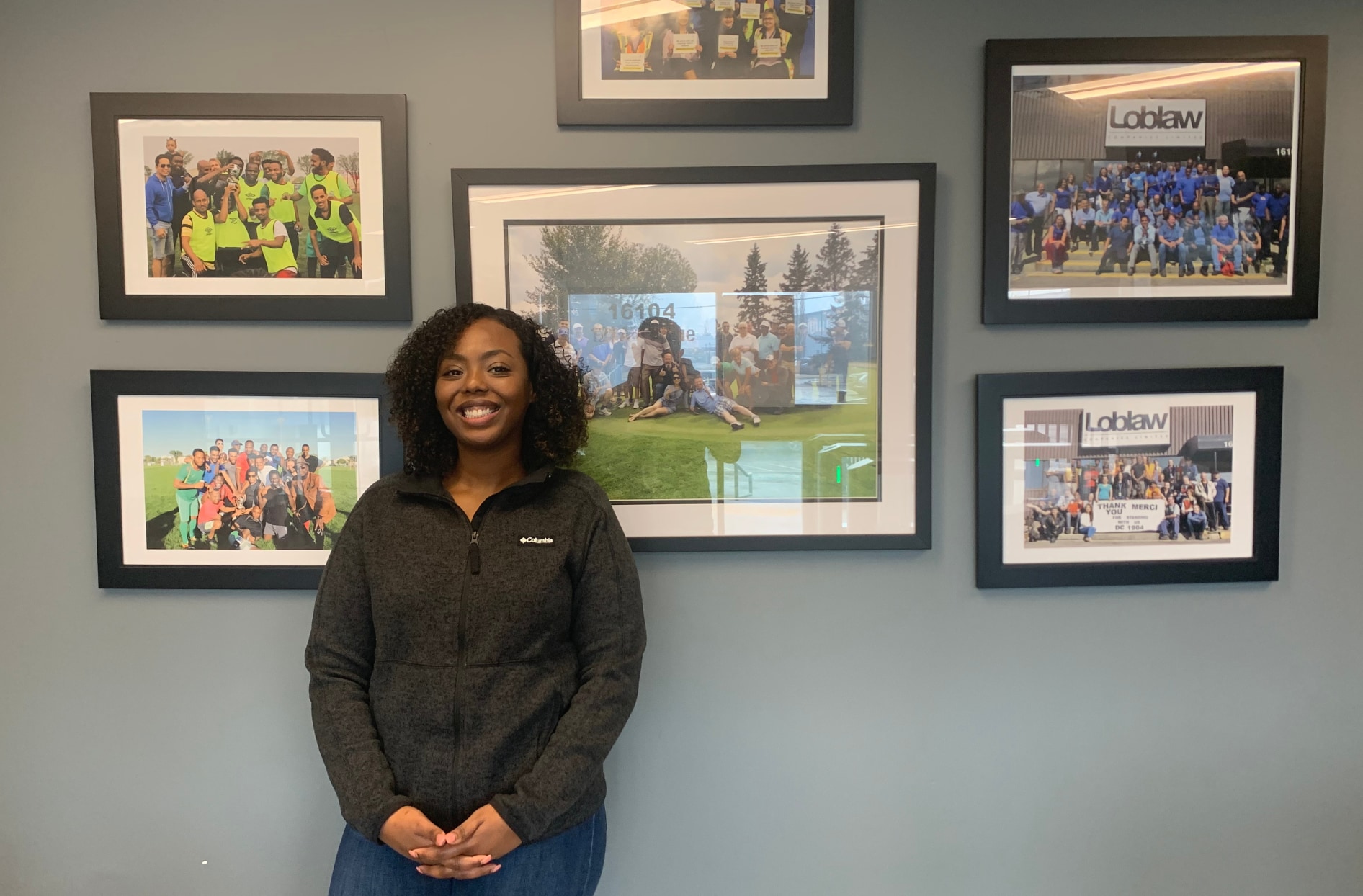Asha uses music to connect to her roots
February 6, 2024

When seven-year-old Asha Farah moved from Mississauga to Cambridge, Ontario, with her family, she remembers feeling and acting differently in her new home.
In diverse Mississauga, she’d had neighbours and classmates who were Black like she was. In Cambridge, there were two or three Black children in her entire grade at school.
“My personality switched a little bit,” says Asha, Human Resources Business Partner for the Edmonton and Winnipeg distribution centres. “I became quiet and reserved, because I didn't have that connection with my classmates. I felt different because of my hair and the colour of my skin, like I was singled out.”
She tried to fit in as best she could. Even though she liked rap and hip-hop music, she felt that there was a negative connotation around “Black people music” and didn’t allow herself to enjoy it as she grew up.
Both of Asha’s parents immigrated to Canada from Somalia a few years before she was born, and because they were both busy working various jobs, she didn’t feel particularly connected to her Somalian heritage or language.
“Understanding Black culture in general was very difficult in a predominately white neighbourhood,” she says.
It wasn’t until Asha went to university that her perspective shifted. She met other Somalian women, made friends who were part of the Black students’ association, and started to explore her culture.
“I realized that I’d held myself back from loving certain genres of music,” she says. “Now I can say that I love rap, R&B, hip-hop, and Afrobeat.”
A vivid memory from her childhood is listening to Somalian music with her mom and aunts. Her mother would sing and dance—two things Asha loves to do to this day—and explain the meaning of the lyrics.
“My mother and I didn't have a lot in common,” she says. “I was born in Canada; she wasn’t. I grew up speaking English and she had to learn it once she arrived here. But we both loved music.”
Asha’s father, meanwhile, passed on to her his love of working at Loblaw. He worked at the company for over 20 years. Shortly after he retired, Asha accepted a job at the same Distribution Centre her dad had worked at.
Asha decided to join the Embrace Your Roots Supply Chain team because she thinks it’s important that people are given the opportunity to connect to their culture: “We try to ensure that our colleagues feel a sense of belonging at work.”
The theme of Black History Month this year is Black History and the Arts, and Asha understands why music and the arts are so important across cultures.
“It’s a way for people to feel a connection,” she says. “The music that I love, for example, tells amazing stories about struggle and going through hard times, about feeling less than in society and how to uplift people. Music has themes or stories that we can all relate to.”


